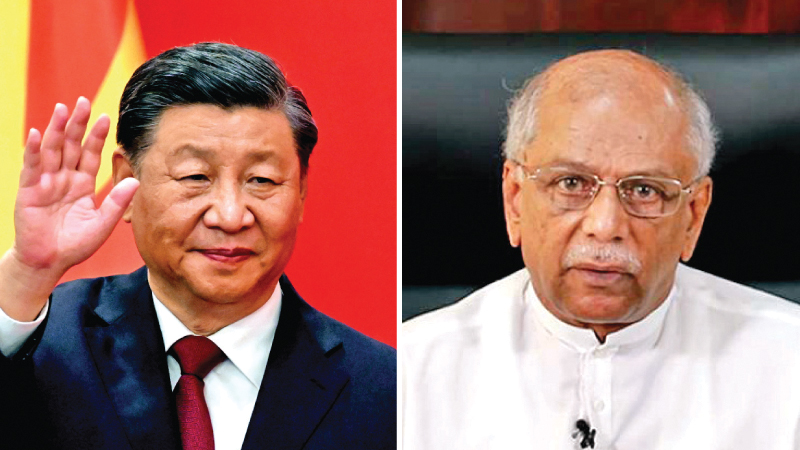- Port City, Hambantota Port to be further developed
- China to gift 3,000 Smart Classrooms
- Sri Lanka’s One China Policy reaffirmed
Prime Minister Dinesh Gunawardena wrapped up his six-day official visit to China yesterday, with a firm reassurance from Beijing on further aid for Sri Lanka and debt restructuring. China also pledged to provide 2,000 more Smart Classrooms to schools islandwide, in addition to the 1,000 pledged on an earlier occasion.
Prime Minister Gunawardena arrived in Beijing on March 25 (Monday) and held extensive talks with President Xi Jinping and his Chinese counterpart Premier Li Qiang, focusing on the economic crisis, debt restructuring and other bilateral and regional issues. The Premier also participated in the Boao Forum, a significant international gathering.
The Prime Minister’s visit followed an official visit to China by President Ranil Wickremesinghe in October last year, where he held bilateral talks with President Jinping and other Chinese leaders. The Prime Minister, who conveyed the best wishes extended by President Wickremesinghe to the Chinese leadership, regularly briefed the President by phone on the progress of talks in the Chinese capital.
In the Chinese version of a joint bilateral statement released yesterday, Beijing’s Foreign Ministry expressed the willingness to “continue supporting its financial institutions to actively negotiate with Sri Lanka, maintain friendly communication with other creditors, play a positive role in the International Monetary Fund (IMF) and assist Sri Lanka in financial relief.” China had previously agreed “in principle” to restructure Sri Lanka’s debt, but the two sides are yet to finalise an agreement.
The statement also highlighted an agreement between the two sides to “make every effort to promote the Port City in Colombo and the Hambantota Port Development Project, turning them into flagship projects of Sino-Sri Lanka cooperation under the Chinese-led Belt and Road Initiative (BRI). China has also expressed the willingness to develop some of the airports in Sri Lanka.
These were among the nine Memorandums of Understanding (MoUs) signed between the two Asian countries which Sri Lanka has described as a “new chapter in the long-term friendship and cooperation”. Trade, investment, customs, and development cooperation were among the subjects covered by the MoUs. China will provide freezers for fishermen under another agreement, State Minister of Fisheries Piyal Nishantha said.
Chinese leaders have told Prime Minister Gunawardena that they were ready to work with Sri Lanka to fully push forward the implementation of important projects under the framework of BRI, deepen cooperation in such fields as economy and trade, agriculture and marine scientific research, tap into the potential for cooperation in clean energy, telecommunication and other areas, and promote the upgrading of pragmatic cooperation between the two countries. Premier Gunawardena said that Sri Lanka is a good partner that China can trust.
Premier Gunawardena thanked China for providing long-term support to the country’s efforts to safeguard national sovereignty, independence and territorial integrity, providing strong assistance for the country’s economic and social development, and offering great support for the country’s response to the Covid-19 pandemic and the financial crisis. He said that Sri Lanka holds the BRI in high esteem, always abides by the One-China principle, and will continue to firmly pursue policies to strengthen friendly cooperation with China. Sri Lanka is willing to work with China to solidly advance BRI cooperation, deepen practical cooperation in various fields, and further people-to-people and cultural exchanges, so as to promote the common development of the two countries as well as regional peace and stability.
During a visit to Shanghai just before concluding his landmark visit, Prime Minister Dinesh Gunawardena reiterated his call for closer economic cooperation with China. In Shanghai, China’s National Quality Certification Centre and Sri Lanka’s Standards Institute (SLSI) signed an MOU to better align trade standards. China is Sri Lanka’s second-largest trading partner and the country’s second-largest source of imports.
“We have to abide by the quality requirements that are needed. Therefore, China’s advanced quality requirements for Sri Lankan exports into China will also need more cooperation and working together for which so many discussions have been held,” Prime Minister Gunawardena said.




